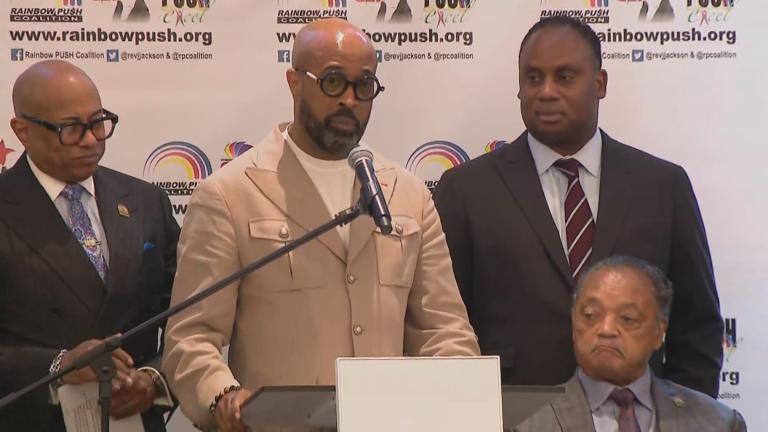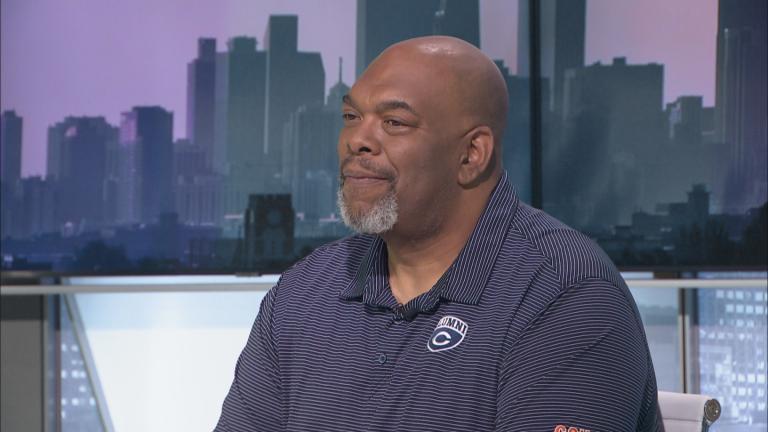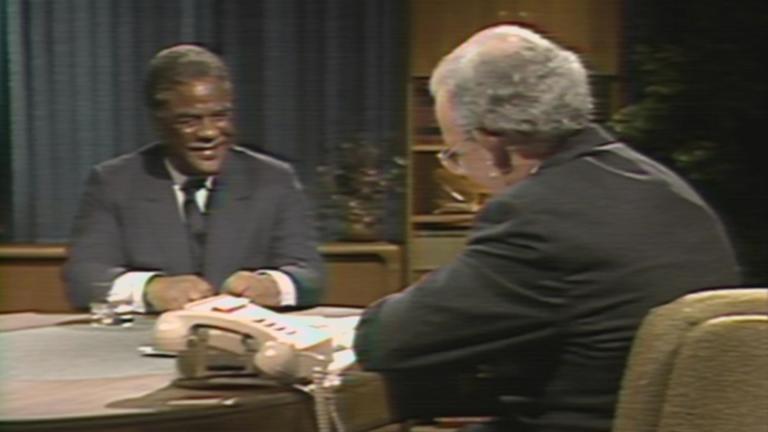In 1965, U.S. Assistant Secretary of Labor Daniel Patrick Moynihan published a report claiming that increasing rates of “out-of-wedlock” births among Black families were to blame for social problems in Black communities.
That report, which has been the subject of significant criticism, gave rise to persistent negative portrayals of Black fathers as absent and uninvolved in their children’s lives — this despite the fact that studies in recent years have found that Black fathers are actually more likely than fathers of other races to provide daily care for their kids.
Sheldon Smith, executive director of the Dovetail Project, said those negative stereotypes are why support, mentorship and recognition for young fathers is critically important.
“I think the biggest misconception is that fathers don’t want to be involved in their children’s life,” Smith said. “What we see from many of our young men who volunteer to sign up for our program to get that help and support, they really feel like support for dads is like a unicorn. I think when we think about fathers in general, it’s not the soft and fuzzy thing, right? And with that, when you are a man and a father, you have no room to make excuses or blames. When fathers are struggling, we call it failure, but it’s not, it’s a parent that’s struggling.”
Smith’s organization offers a 12-week program for young fathers ages 17 to 24 to provide mentorship and other support.
“We teach them three critical things: parenting skills, life skills and something that we call felony street law,” Smith said. “And when the fathers complete the program, they receive a job, a GED or trade along with a $500 stipend. Felony street law is important because as a dad, you just don’t have to worry about the criminal justice system. You have to worry about the family law system as well when it comes to paternity rights.”
Joseph Williams founded his organization, Mr. Dad’s Father’s Club, because he saw a need in his community for dads to be more present in their children’s schools.
“With our programming, we’re having fathers come in on a weekly basis to read books to children to boost their confidence and self-esteem,” Williams said. “We’re working with our youth, we’re mentoring them and doing one-on-one group support and teaching them about civic engagement, bullying and all of those great things. We now host fatherhood sessions where we actually mentor our fathers and help build them as they become great leaders. A lot of our fathers just don’t know some of the resources that exist. They don’t know that they can go to the zoo for free sometime, or they can go to your local library and pick up a Wi-Fi pass. A lot of these fathers really are involved but they need to know how they can connect.”
The organization Real Men Cook began with a focus on food wellness but has since broadened its mission to community wellness. Rael Jackson, program manager, said that since the organization hosted its first Father’s Day event 34 years ago, he’s seen families all over the city begin their own cookout traditions.
“We have made Father’s Day meaningful where all over Chicago, you see people cooking, barbecuing, picnics, people are coming together on Father’s Day,” Jackson said. “And that’s what we really wanted to do is uplift the men that are making a difference in their communities, not just the fathers, but the father figures, the coaches, the teachers that are involved in a lot. Food has always been the hook because food when men cook is more out of love as opposed to utilitarian. And so that love is shown to the community … by uplifting these men in our community.”
Jackson said one of his models for great fatherhood was the founder of Real Men Cook, Kofi Moyo, whom he calls his “bonus father.”
“He was a Renaissance man,” Jackson said. “He had eight children, and most of them were in Cincinnati, and he would go visit the children twice a month. He would take that car trip to Cincinnati twice a month, which is a five-hour ride one way and five-hour ride back. And so, he proved that men really want to be with their children. He stood up.”
- This Sunday, Real Men Cook will host its 34th annual Father’s Day cookout with food cooked by volunteers at The Quarry, 2423 E. 75th St.
- The Dovetail Project is partnering with Green Street Smoked Meats through Monday to benefit the organization.
- And on Saturday, Mr. Dad's Father's Club hosted its 5th annual Father’s Day march at Ogden Park.
Note: This article was published June 17 and updated with additional information June 18.








